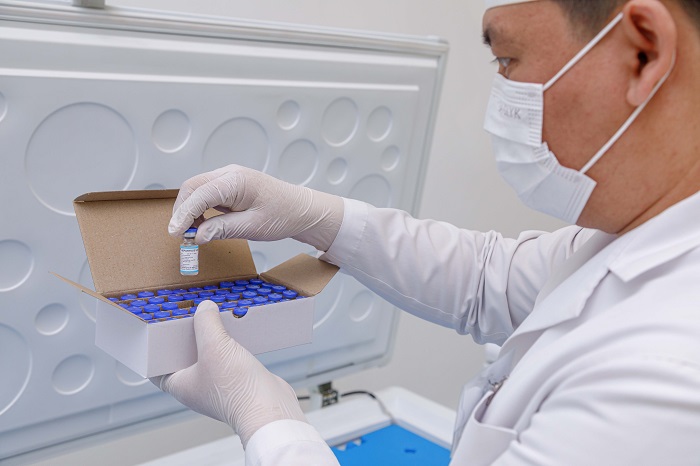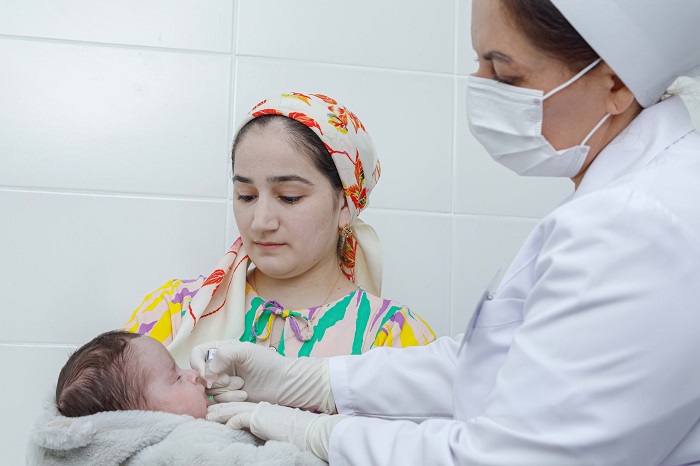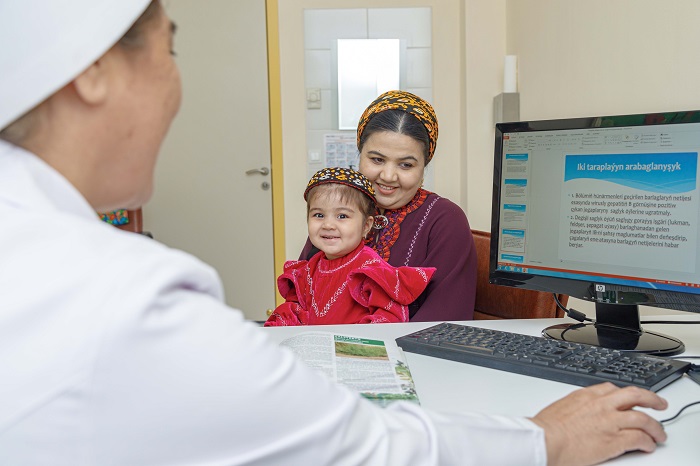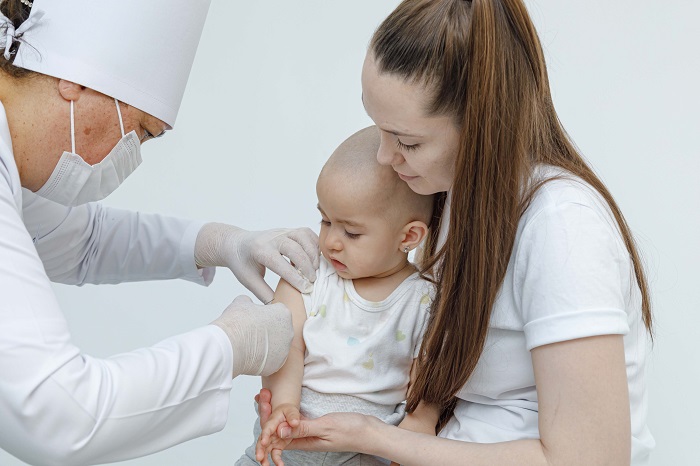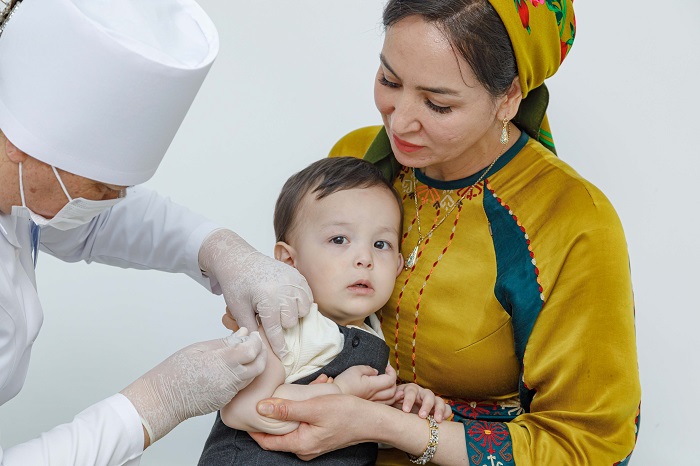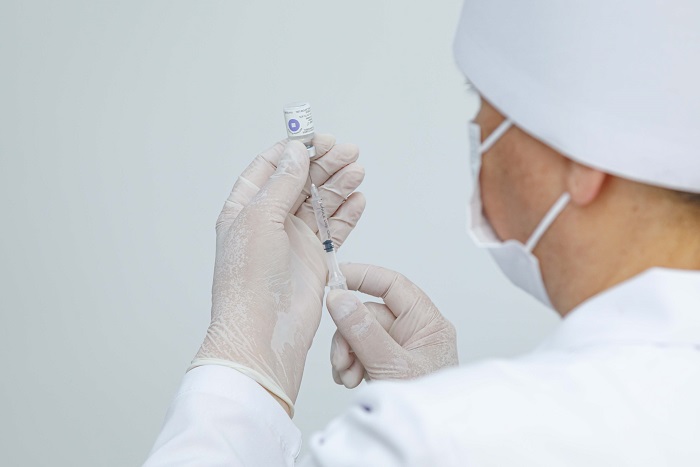European Immunization Week (21-27 April 2024) launches a year-long commemoration of the Expanded Programme on Immunization (EPI), a global initiative launched in 1974 to expand the benefits of essential WHO-recommended vaccines to all. The EPI has become one of the biggest public health successes of the 20th and 21st century, saving up to 5 million lives per year.
“For over three decades, WHO and Ministry of Health and Medical Industry of Turkmenistan worked together to strengthen the national healthcare system. The partnership under the EPI has traditionally been a centerpiece in this cooperation. Today, with the advisory and technical support of WHO Country Office in Turkmenistan, the country guarantees free vaccination to all against 14 infections within the national schedule of preventive vaccinations,” said Dr Zaitsev, WHO Representative in Turkmenistan
So, what accounts for such a dramatic success?
By 1974, the smallpox vaccine had nearly eradicated smallpox, by all accounts a miracle unburdening billions of people from the threat of a ravaging disease that killed one out of three of those infected. While several vaccines to prevent diseases beyond smallpox were available by 1974, most children in the world were not benefitting from them. Thus, the EPI was born ̶ in a World Health Assembly resolution adopted by all WHO Member States ̶to provide all children access to vaccines against six deadly diseases beyond smallpox: polio, tuberculosis, pertussis, tetanus, measles and diphtheria. In the intervening years this package of essential recommended vaccines has increased to 13 universally recommended vaccines across the life course, and 17 additional vaccines with context-dependent recommendations.
Impact in the WHO European Region
In 1974, only 10% of children in the WHO European Region were being vaccinated against diphtheria, tetanus and pertussis. Today, that figure has increased to 94% and incidence of these diseases has dropped dramatically. As of the end of 2022, 33 countries out of 53 in the Region have eliminated endemic spread of measles. While polio was still common in several countries in 1974, the Region was declared polio-free in 2003.
According to the national data, Turkmenistan population is covered with routine vaccination at a high level – 98%. Immunization in Turkmenistan has made a huge impact, eliminating such dangerous diseases as measles and rubella. In 2016, Turkmenistan among the first ones has introduced vaccination against the Human Papillomavirus (HPV) available both for girls and boys. In 2020, WHO and European Union have launched a joint project “Central Asia COVID-19 Crisis Response” (CACCR) in Turkmenistan. Initiated to respond to the challenges of the coronavirus pandemic, this project has subsequently supported the Ministry of Health and Medical Industry of Turkmenistan in other critical aspects of immunization.
WHO collaborates with partner UN agencies and international donors to provide support and expertise to the national healthcare specialists in expanding EPI in Turkmenistan and building healthier society in the whole European Region.
Looking ahead
The success of national vaccination programmes shows us what is humanly possible when people work together to improve collective well-being. At the same time, it highlights the tremendous gains that could be lost if we do not sustain high vaccination rates across the Region and the world.
European Immunization Agenda 2030
Safeguarding the health of people across the WHO European Region requires that WHO, health authorities, partners, health workers and civil society across the Region work together to protect the profound legacy of the Expanded Programme on Immunization. The European Immunization Agenda 2030 adopted by Member States of the WHO European Region builds on that legacy by focusing on equitable access to vaccines for all, life-course vaccination and partnerships. To ensure healthier and safer lives for current and future generations, it is imperative that vaccination remain a top priority in public health.
Links:
European Immunization Week 2024 https://www.who.int/europe/event/european-immunization-week-2024
50th anniversary of the Expanded Programme on Immunization https://www.who.int/news-room/events/detail/2024/01/01/default-calendar/50thanniversary-of-the-expanded-programme-on-immunization-(epi)
For further information from WHO Country Office in Turkmenistan please contact:
Dayanch Hojageldiyev
Vaccine Demand and Acceptance Officer
WHO Country Office in Turkmenistan
Email: dhojageldiyev@who.int ///WHO Turkmenistan, 23 April 2024
